Introducing EquiNectar® to Your Horse
EquiNectar® is highly palatable, and horses quickly develop a taste for it. We recommend a gradual introduction as follows:
Add EquiNectar® to feed twice daily. (If you feed only once per day, please contact us for adjusted feeding recommendations.)
- Days 1-3: 1 fl oz (one pump) twice daily
- Days 4-6: 2 fl oz (two pumps) twice daily
- Days 7-9: 3 fl oz (three pumps) twice daily
For small horses under 660 lbs in light work, start with the full feed rate of 2.5 fl oz twice daily.
From day 10 onwards, use the full feed rate based on your horse's weight and activity level, as detailed in the table below.
Ongoing Feeding of EquiNectar®
Refer to the table below to determine the appropriate daily feeding amount for your horse. Adjust the EquiNectar® usage if your horse's activity level changes.
| Horse Weight | Feeding Amount | Number of Pumps per Day |
|---|---|---|
| Up to 660 lbs |
Light to Medium Activity
2.5 fl oz twice daily (5 fl oz total)
|
5 |
| Up to 660 lbs |
High Activity
4 fl oz twice daily (8 fl oz total)
|
8 |
| 660 to 1,200 lbs |
Light to Medium Activity
3 fl oz twice daily (6 fl oz total)
|
6 |
| 660 to 1,200 lbs |
High Activity
5 fl oz twice daily (10 fl oz total)
|
10 |
| Over 1,200 lbs |
Light to Medium Activity
4 fl oz twice daily (8 fl oz total)
|
8 |
| Over 1,200 lbs |
High Activity
6 fl oz twice daily (12 fl oz total)
|
12 |
Note: Using standard EquiNectar® 1 fl oz pump dispenser.
Estimating Your Horse's Weight
If you're unsure of your horse's exact weight, the following guide may be helpful:
- Up to 660 lbs: Ponies
- 660 to 1,200 lbs: Small to medium cobs, sport horse types, thoroughbreds, general riding horses
- Over 1,200 lbs: Large cobs, draft types, shires


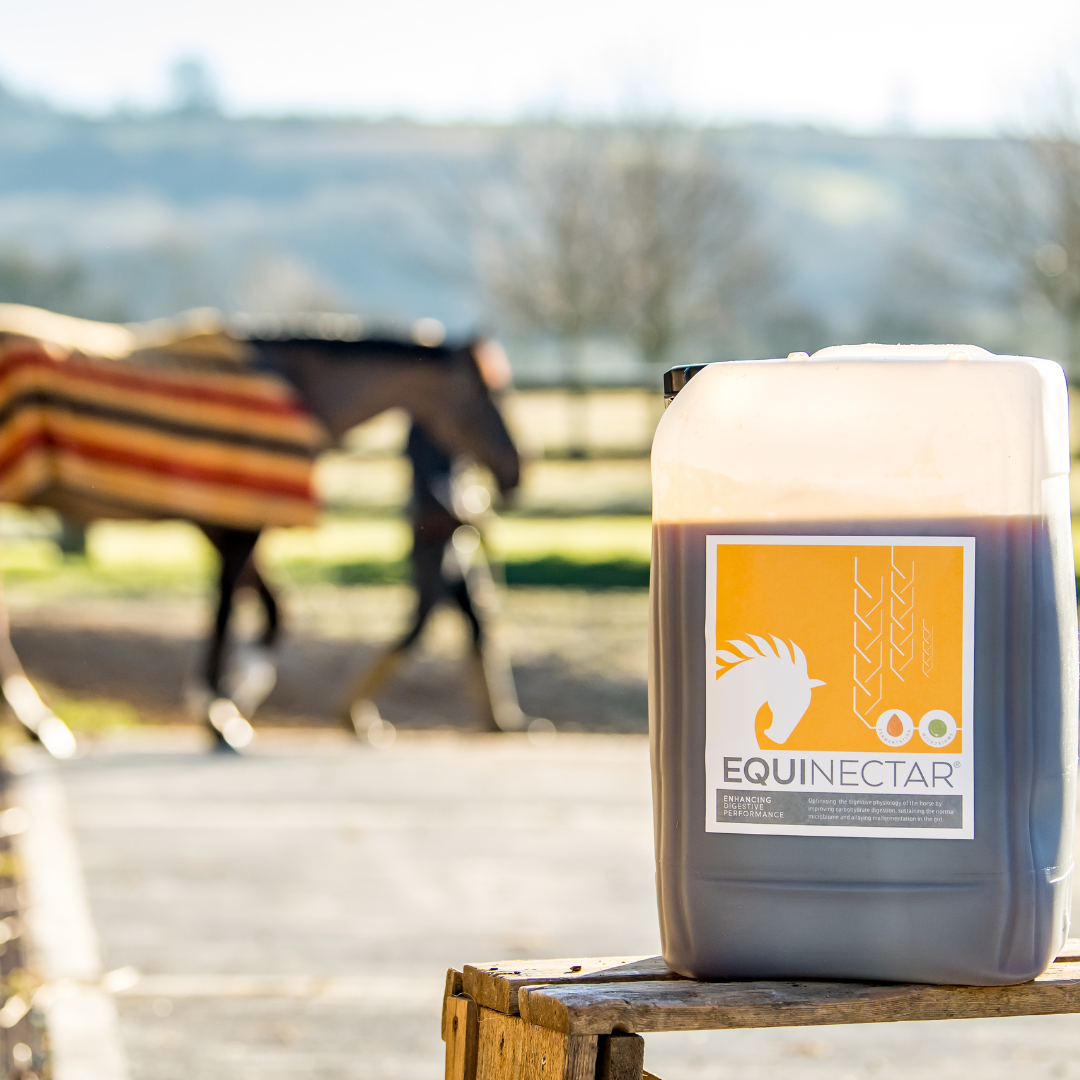
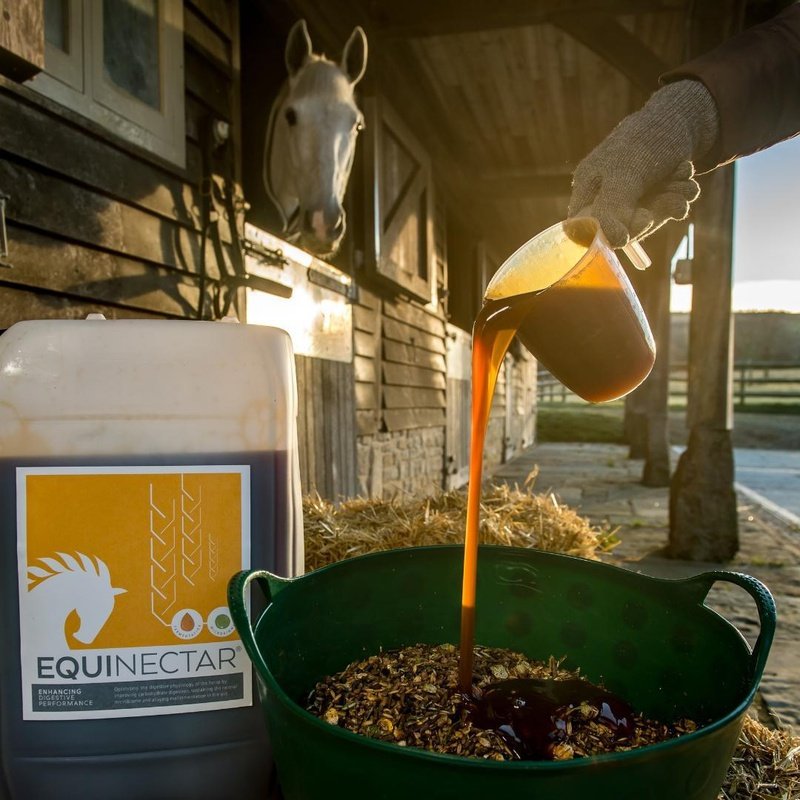
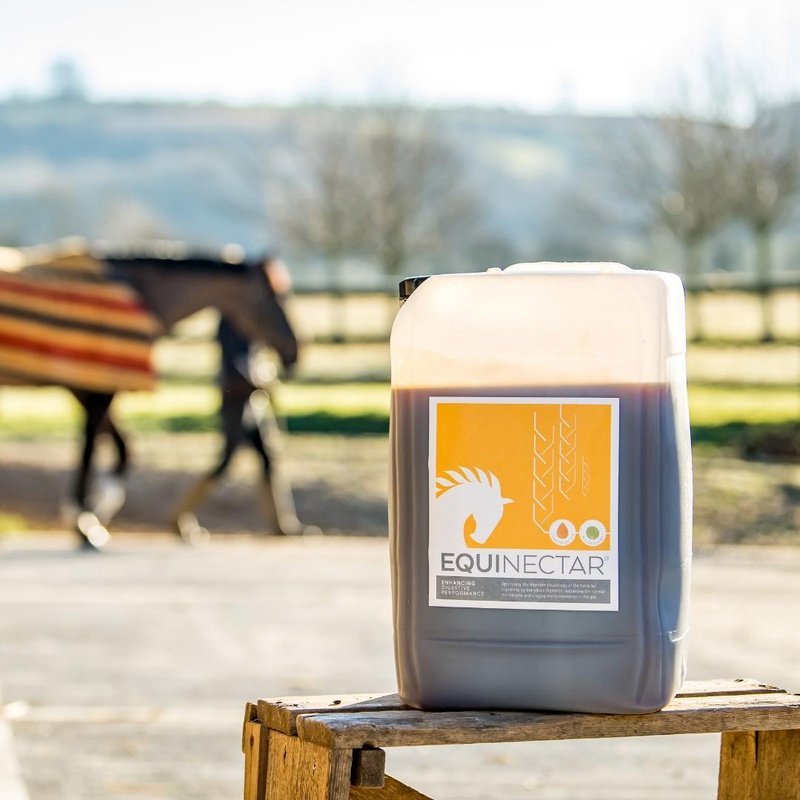
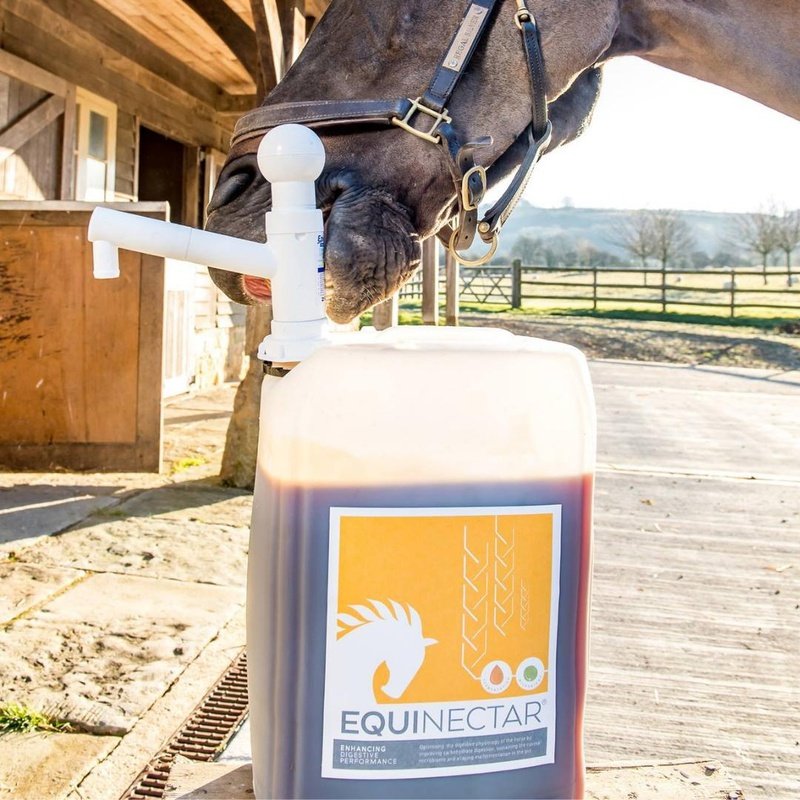
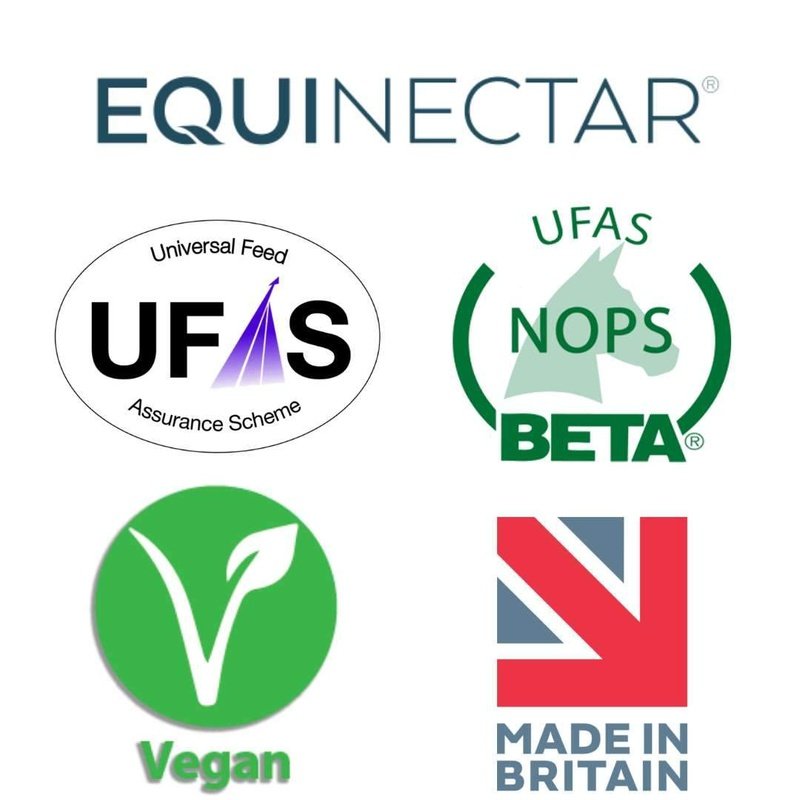
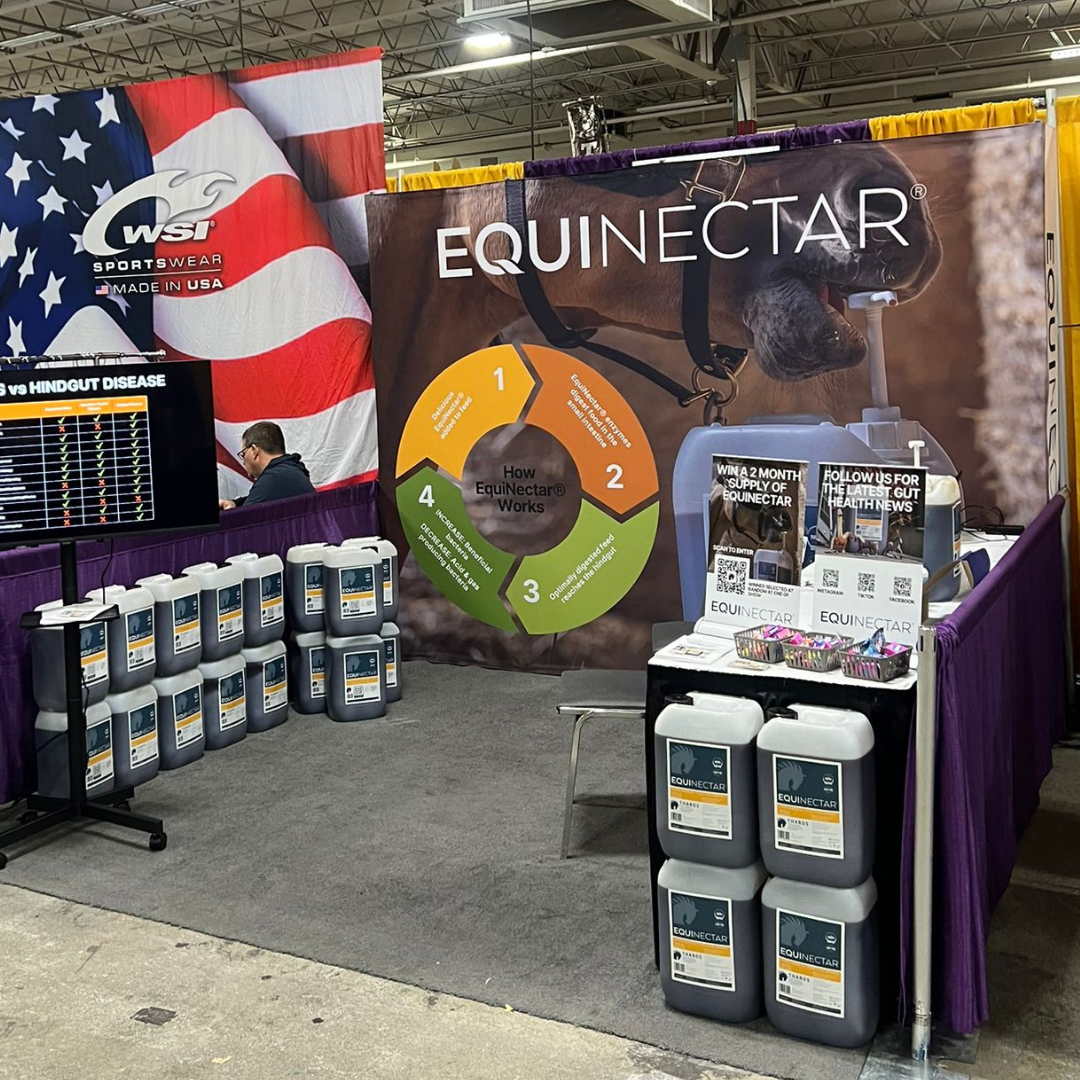

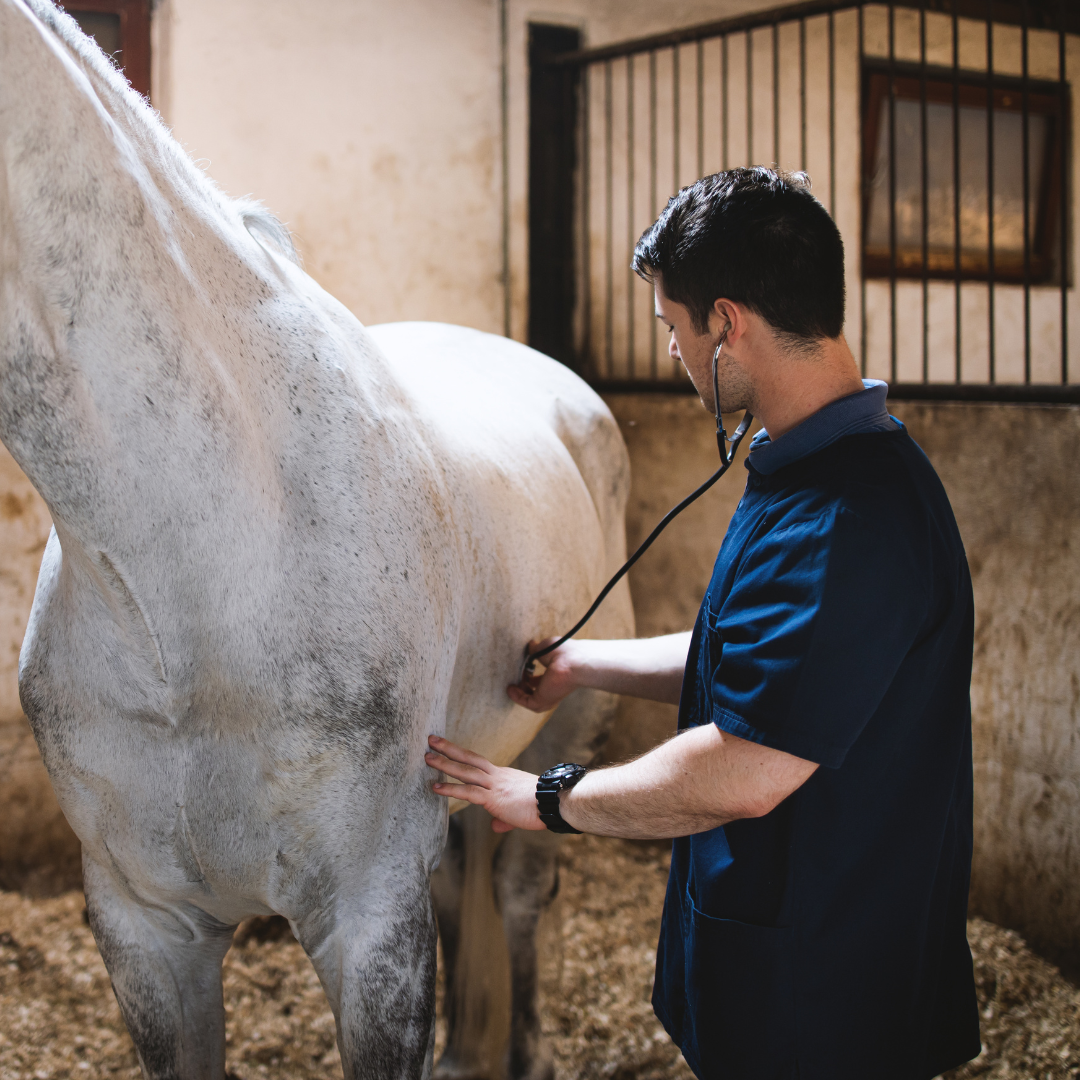
Share: